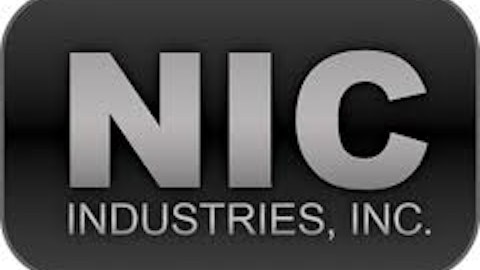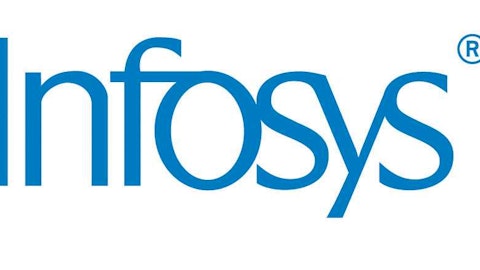During my schooling days, I preferred to seek assistance from my peers, and not private tutors, when I faced difficulties with my academic work. I felt that peers understood the problems I faced from a similar perspective. Corporate executives are thinking in a similar fashion, ditching expensive external consultants for access to the wisdom of peers through member networks. The Corporate Executive Board Company (NYSE:CEB), a member-based advisory company providing subscription-based best-practices research to corporate executives, is a beneficiary of this trend.
Network economics where the strong get stronger
Corporate executives are able to access research published by The Corporate Executive Board Company (NYSE:CEB) based on actual case studies of similar problems that others have encountered, and how they solved the problems. In addition to useful desktop research and analysis, Corporate Executive Board also helps to link its members with other consenting members. Like stock exchanges and social networking sites, the value of Corporate Executive Board’s networks grows with additional members, as they contribute to an increasing body of information, knowledge, and experiences.
Critics will cite the example of how Facebook Inc (NASDAQ:FB) replaced MySpace as the top social network in the U.S., to support the argument that network effects are rarely sustainable. While there are low switching costs involved with changing to another social network or having multiple social network accounts, there is much more at stake for high ranking white collar executives. Corporate Executive Board counts more than 10,000 organizations, and over 200,000 executives, among its members. For corporate executives, switching to an inferior network could mean losing your job if you fail to make the right decisions.
Substitution effect not significant as alternatives are less appealing
There are two reasons why organizations and executives prefer subscribing to The Corporate Executive Board Company (NYSE:CEB)’s membership program over other alternatives, such as hiring external consultants.
Firstly, the cost of subscribing to Corporate Executive Board’s membership program is small, relative to fees that consultants charge. According to a 2006 Fool.com article, membership cost about $35,000 per program then. Also, Corporate Executive Board charges a fixed annual fee, as opposed to out-of-pocket expenses and other one-offs that consultants include in their bill.
Secondly, no single individual wields significant influence over the value of the program under Corporate Executive Board’s model. Any individual member who drops out of the program is going to have a minimal impact on the overall value of the program membership. On the contrary, if one or two ‘stars’ leave the consulting team, the quality of the advice offered by external consultants might drop by more than just a notch.
Growth drivers
The Corporate Executive Board Company (NYSE:CEB) is targeting long term annual growth rates of between 8%-13%, by increasing customer accounts and expanding geographical scope. Currently, close to 90% of Corporate Executive Board’s client base are Fortune 500 companies, suggesting that it has the ability to price discriminate and target smaller sized companies with lower fees. There is also room for growth in certain geographic regions such as Southern Europe, which accounted for less than 2% of its turnover.
On top of organic growth, Corporate Executive Board also acquired SHL, a U.K. based provider of cloud-based talent measurement and management solutions in August 2012. Given that it is much easier to sell new products to existing customers than win new customers, Corporate Executive Board is currently cross-selling SHL’s assessment and talent analytics products to its members which are not currently clients of SHL.
Peer comparison
Corporate Executive Board’s peers include Booz Allen Hamilton Holding Corporation (NYSE:BAH) and Accenture Plc (NYSE:ACN).
I am cautious on Booz Allen Hamilton, considering its reliance on the U.S. government and its agencies as its major client. Federal agencies are typically perceived as good customers given a steady pipeline of contracts and limited credit risk. However, it remains to be seen if government contractors like Booz Allen Hamilton will benefit or suffer from austerity measures by the U.S. government. Competition for fewer dollars might favor bigger players like Booz Allen Hamilton, but I am of the view that the overall reduction in government work might be a bigger factor. Booz Allen Hamilton’s fiscal 2013 (year ended March) revenues were down 1.7% from fiscal 2012 and management is guiding for a low single digit decline in full fiscal year 2014. This echoes my view that the impact of austerity measures will be negative for Booz Allen Hamilton.
At its second quarter fiscal 2013 earnings call, Accenture guided lower for full year fiscal 2013 revenue, expecting revenue growth to be in the lower half of its previously guided 5%-8% in local currency terms. Management attributed the lower guidance to weaker than expected performance for its Europe consulting business. I am negative on Accenture, given that it generates more than half of its revenues from the consulting segment. The consulting segment is more cyclical than its technology and business process outsourcing divisions. Consulting contracts are typically one-off transactions and are more likely to be terminated in the event of a downturn.
Conclusion
Although The Corporate Executive Board Company (NYSE:CEB) trades at a premium to its other consulting firm peers with a forward P/E of 18.4, I think this is justified given the attractive economics of its business model. Revenue from new customers flows straight down to the earnings for The Corporate Executive Board Company (NYSE:CEB). In comparison, consulting firms need to hire more staff if there is an increase in consulting assignments, or raise salaries to retain the most outstanding employees to maintain the value of their strategic input.
Mark Lin has no position in any stocks mentioned. The Motley Fool recommends Accenture.
The article Does This Stock Deserve a Premium Over Its Peers? originally appeared on Fool.com.
Copyright © 1995 – 2013 The Motley Fool, LLC. All rights reserved. The Motley Fool has a disclosure policy.



